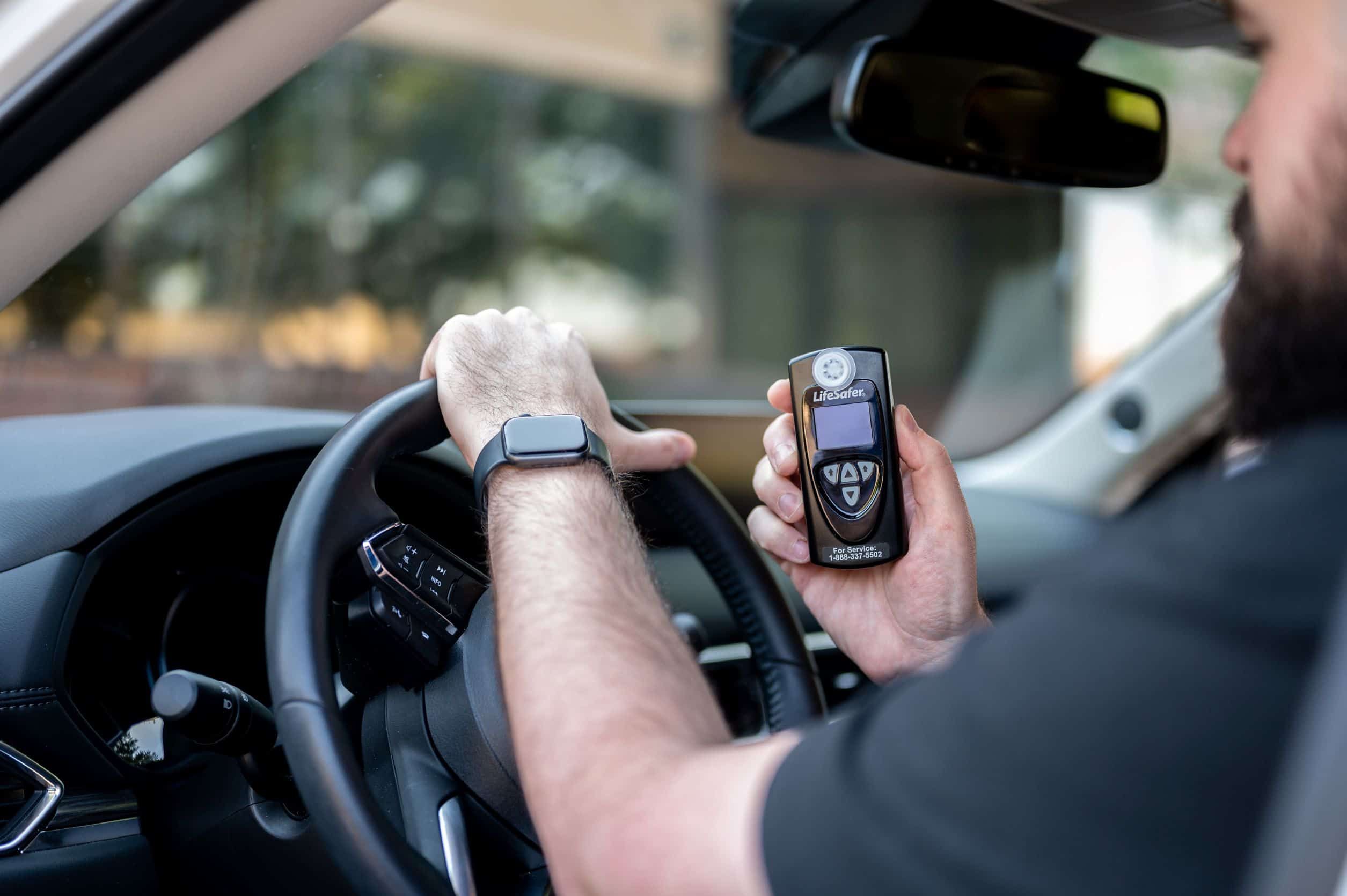What is a Car Breathalyzer?
Often referred to as ignition interlock devices (IID), car breathalyzers are compact electronic tools integrated into your vehicle’s ignition system. Once they’re in place, these devices ensure that the driver undergoes a Breath Alcohol Content (BrAC) test before the vehicle starts. What’s more, to maintain consistent sobriety, these devices might prompt retests at unpredictable intervals during the drive.
The surge in using car breathalyzers, or IIDs, is evident due to many states amplifying their anti-drunk driving regulations. Their undeniable role in stopping intoxicated individuals from hitting the road makes them a powerful tool in the quest for safer roadways.
How does a car breathalyzer work?
Wondering how a car breathalyzer functions? If the car breathalyzer detects a Blood Alcohol Concentration (BAC) above the specified threshold, your car won’t start. However, if your breath test shows a BAC below this limit, you’re good to go. Regular maintenance and calibration at an approved service center are essential for this device. How often you’ll need to check in is usually set by state regulations, but it’s typically every 30, 60, or 90 days. LifeSafer’s car breathalyzer is among the most compact and user-friendly out there. Get a deal on your device now!
- Blow into the car breathalyzer.
- If the outcome reads PASS, you can start your car.
- But if it shows FAIL, your vehicle stays off, and you might have to blow again to start your vehicle.
Get The Highest Rated Interlock.
Do Car Breathalyzers Require Retests?
It might sound easy to trick the system by getting a sober buddy to breathe into it. However, the catch lies in the periodic retests. Many jurisdictions insist on these surprise retests while driving, ensuring the driver remains sober. The mechanics are identical to the initial test, but now, the vehicle is already operational. Devices typically provide an alert in advance of a retest, giving ample time to safely park if necessary. The same breath pattern is adopted for both initial tests and retests.
Car Breathalyzer Calibration
Depending on the state in which the violation occurred, car breathalyzer calibration might be obligatory every 30 to 90 days. Calibration entails a visit to your service provider’s facility, allowing technicians to verify your IID’s optimal performance and compliance with state regulations.


Get back on the road today.
Schedule your installation appointment now!
